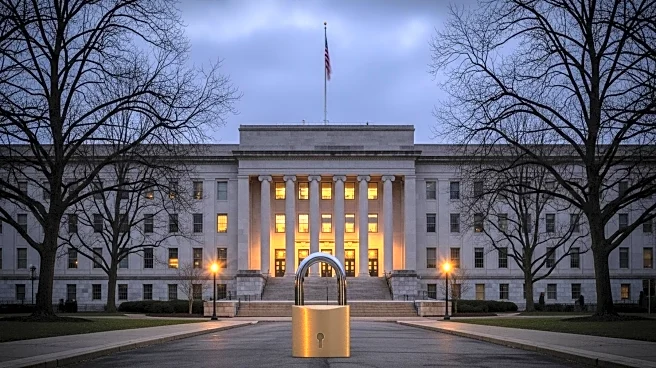What's Happening?
The U.S. government shutdown has entered its second week with no immediate resolution in sight. The White House has announced plans to potentially fire thousands of federal workers as part of cost-saving measures. This move is part of an effort to manage the financial impact of the shutdown, which has left many government services suspended and employees furloughed. CBS News' Willie James Inman reports on the ongoing situation and the challenges faced by federal workers and agencies.
Why It's Important?
The prolonged government shutdown has significant implications for the U.S. economy and public services. The potential firing of federal workers could exacerbate the economic impact, affecting consumer spending and increasing unemployment rates. Government agencies are struggling to maintain operations, which could lead to delays in essential services and affect public trust in government institutions. The shutdown also poses challenges for political leaders, who must navigate complex negotiations to reach a resolution.
What's Next?
Negotiations between political leaders are expected to continue as they seek a resolution to the shutdown. The potential firing of federal workers may increase pressure on lawmakers to find a compromise. Stakeholders, including government agencies, employees, and the public, will be closely monitoring developments. The outcome of these negotiations could have lasting effects on government operations and political dynamics in the U.S.
Beyond the Headlines
The shutdown highlights broader issues within U.S. political systems, such as partisan gridlock and the challenges of budgetary negotiations. The impact on federal workers raises ethical concerns about job security and the government's responsibility to its employees. Additionally, the shutdown may influence public opinion and voter behavior, potentially affecting future elections and policy decisions.











